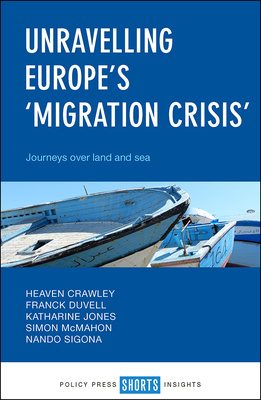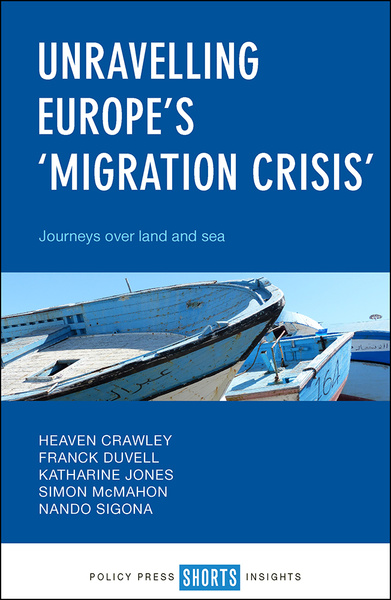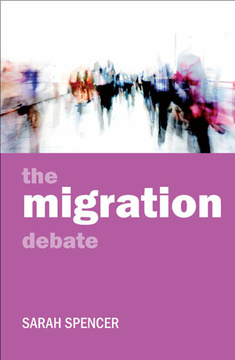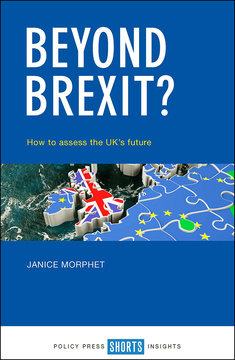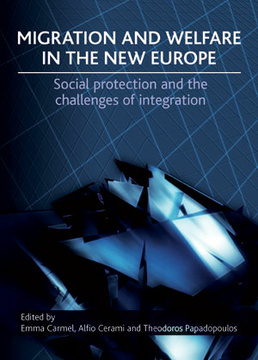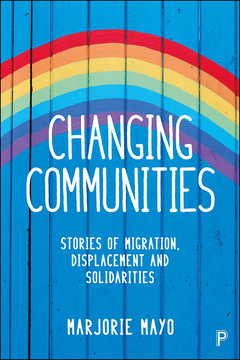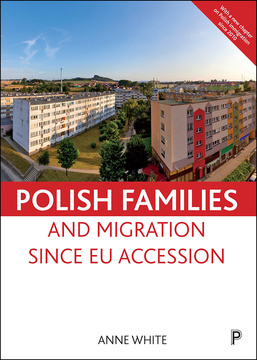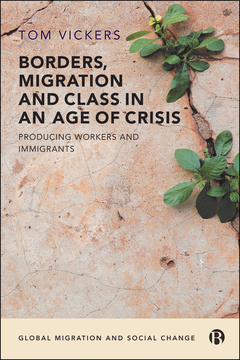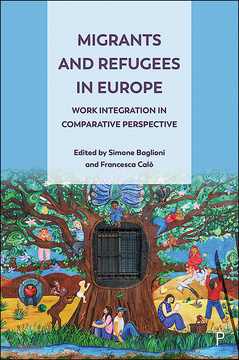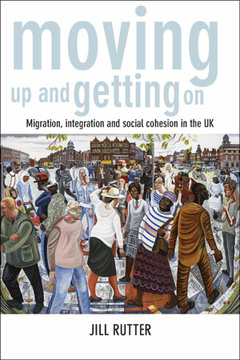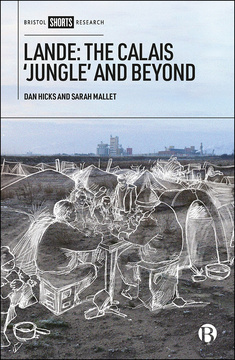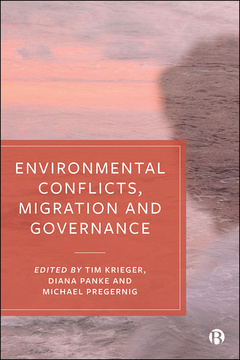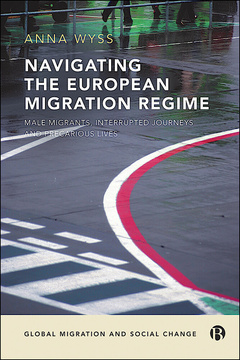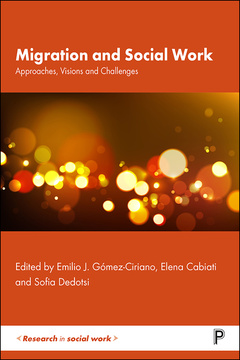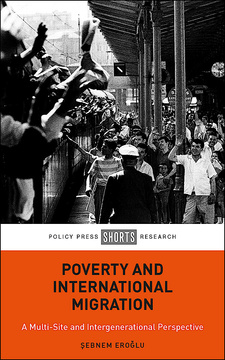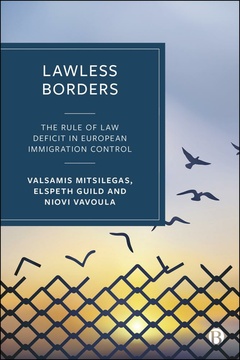Unravelling Europe's 'Migration Crisis'
Journeys Over Land and Sea
By Heaven Crawley, Franck Duvell, Katharine Jones, Simon McMahon and Nando Sigona
Published
Dec 13, 2017Page count
200 pagesISBN
978-1447343219Dimensions
198 x 129 mmImprint
Policy PressPublished
Dec 13, 2017Page count
200 pagesISBN
978-1447343233Imprint
Policy PressPublished
Dec 13, 2017Page count
200 pagesISBN
978-1447343240Imprint
Policy PressIn an effort to contribute to understanding after the Channel boat tragedy last week, we are offering the ebook of Unravelling Europe's 'Migration Crisis': Journeys Over Land and Sea free to download until 23 December 2021. Add the EPUB version to your basket and use code CRAWLEY21.
In the media
'The Government’s hostile environment and its consequences on integration' by Nando Sigona in Discover Society
On our blog: Crocodile tears: why safe and legal migration routes are the only answer
On the blog:
Who is breaking the asylum system?
What is it like to travel to Europe over land and sea in order to secure a future for yourself and your family? Why are so many people willing to risk their lives crossing the Mediterranean? What are their hopes and fears? And why is Europe, one of the richest regions of the world, unable to cope?
Drawing on compelling first-hand accounts from 500 people who arrived on the shores of Europe in 2015, this important new book unpacks their routes, experiences and decisions. It provides a framework for understanding the dynamics underpinning recent unprecedented levels of migration across, and loss of life in, the Mediterranean, casting new light on the ‘migration crisis’ and challenging politicians, policy makers and the media to rethink their understanding of why and how people move.
“Unravelling Europe’s “Migration Crisis” provides insights into the drivers, triggers, and mobility constraints of refugees and forced migrants; their lived experiences during their precarious journeys; and their reception upon arrival in Europe…essential reading.” Refuge: Canada's Journal on Refugees
"Essential reading for all scholars of migration and refugees. Through expansive and original interviews with 500 people on the move, this book illustrates the routes people take to Europe, the reasons they take them, and the extraordinary challenges they face along the way." Jennifer Hyndman, York University, Canada
"The most insightful publication currently available on one of the most crucial issues of our times. Beautifully written, powerfully argued and profoundly compassionate, it will further enhance the impact of the research it is based on. It deserves to be very widely read." Michael Collyer, University of Sussex
'Who better than this powerful team of leading UK-based academics to analyse and explain the human stories behind the so called ‘migration crisis’ of the Mediterranean? Essential for academics and policy makers alike, this book provides a new and original interpretation of contemporary migration processes to Europe.' Roger Zetter, Refugee Studies Centre, University of Oxford
"In the face of the most serious crisis of forced displacement since WW2, this detailed study provides critically important information and analysis." Iain Levine, Deputy Executive Director for Program, Human Rights Watch
Heaven Crawley is Professor of International Migration at Coventry University’s Centre for Trust, Peace and Social Relations (CTPSR) and Senior Research Associate at the Overseas Development Institute (ODI) and Refugee Law Initiative. Heaven’s research focuses on the lived experiences of refugees and migrants. Over the past 25 years she has worked in a range of institutional settings including government, civil society and the UN, and published extensively on asylum and migration policy and practice in the UK and Europe.
Franck Düvell is Associate Professor and Senior Researcher at the Centre on Migration, Policy and Society (COMPAS) at the University of Oxford, a Senior member of the Common Room of St Antony’s College, Oxford, member of South East European Studies at Oxford and advisor of the Migration Research Centre at Koc University, Istanbul. He has researched European and international migration for over 20 years, published nine books and over 40 journal articles. He has also advised a wide range of stakeholders.
Katharine Jones is a Senior Research Fellow at Coventry University’s Centre for Trust, Peace and Social Relations. Educated at the Universities of Newcastle upon Tyne and Manchester, Katharine has more than 16 years’ experience of conducting migration-related research in a wide range of institutional settings and her work focuses on the human rights impacts and business models of the migration industry. She regularly advises international organisations and international NGOs on this topic.
Simon joined Coventry University’s Centre for Trust, Peace and Social Relations as a Research Fellow in September 2014. He has a PhD at King’s College London and has been a visiting researcher at the European University Institute in Italy, the Pompeu Fabra University in Spain and the Colegio de la Frontera Sur in Mexico. Simon has published several books and journal articles as well as writing for outlets such as The Guardian.
Nando Sigona is Deputy Director of the University of Birmingham’s Institute for Research into Superdiversity. His research interests include: undocumented migration, statelessness, child and youth migration, Roma politics and forced displacement. His work has appeared in a range of international academic journals and books. He is a founding editor of the journal Migration Studies and lead editor of Global Migration and Social Change book series at Policy Press. He has written for Newsweek, The Independent, Libération, OpenDemocracy and The Conversation.
The view from Europe
Unravelling Europe’s ‘migration crisis’
Not one route but many: unpacking the journey to Europe
The decision to leave
Navigating borders and danger: the use of smugglers
Moving on
Across the sea… and beyond
Rethinking Europe’s response







